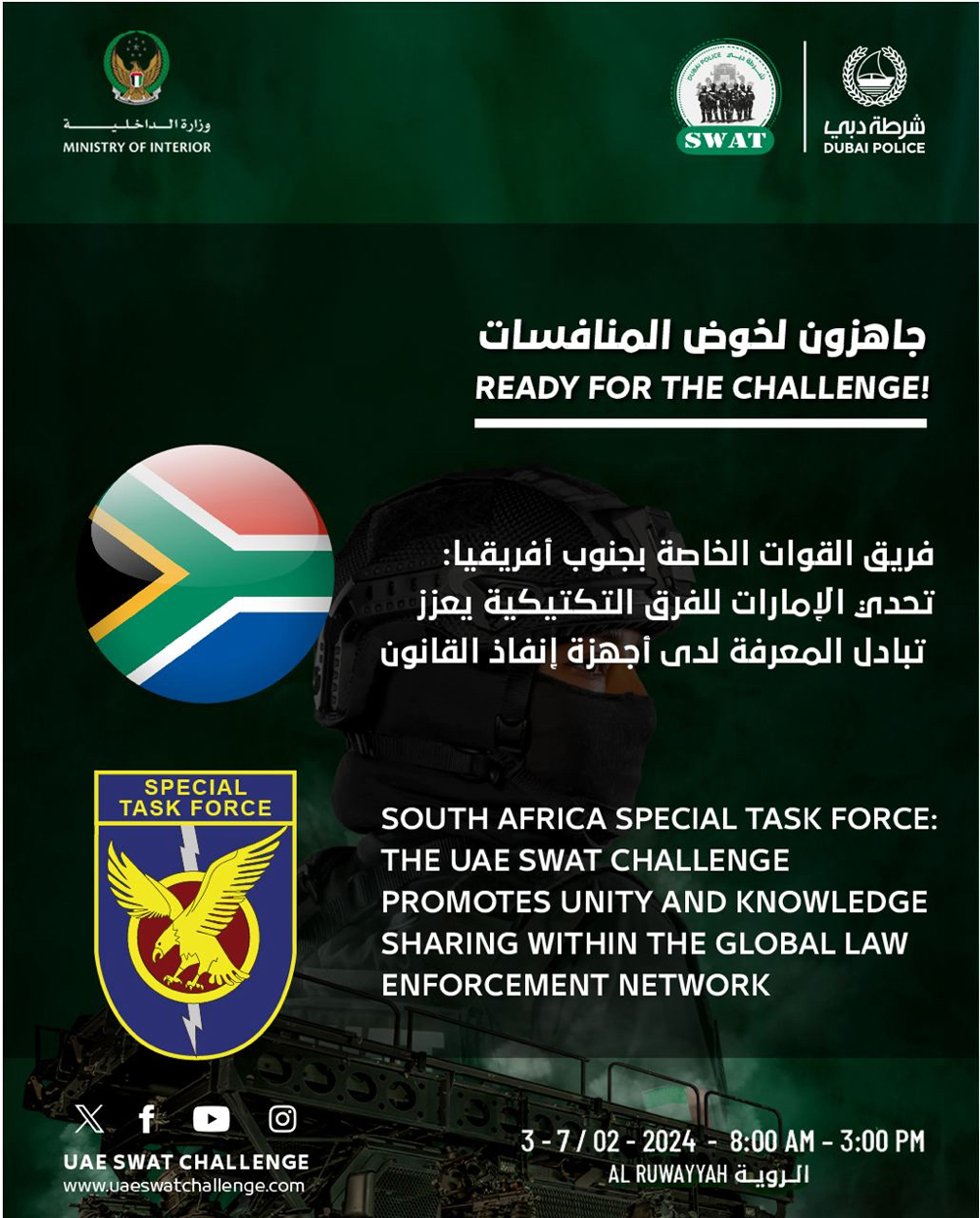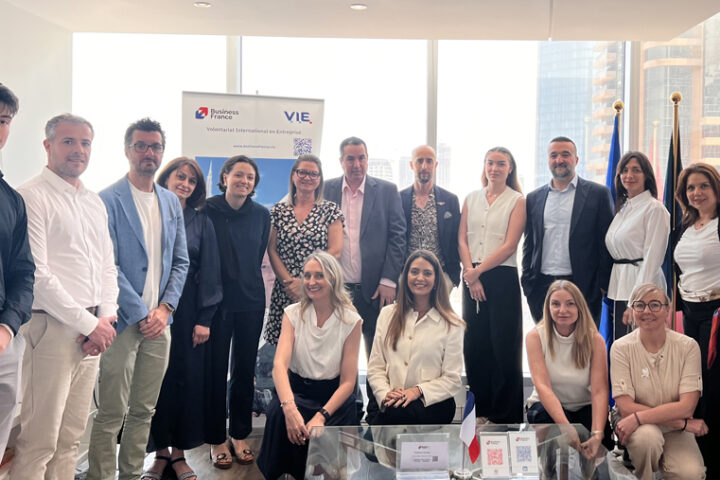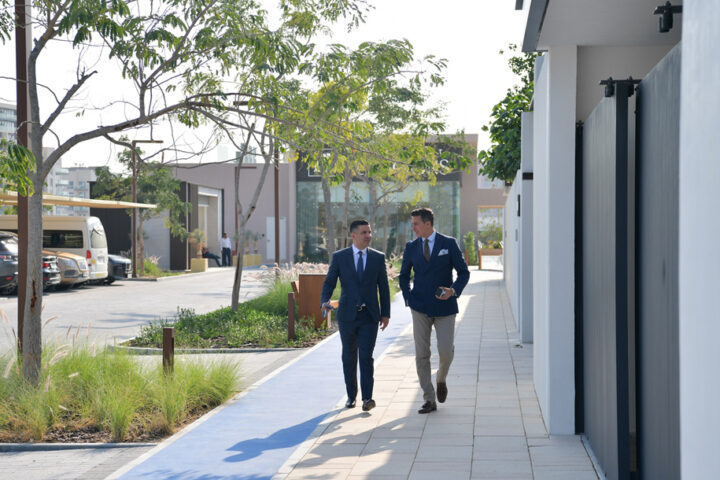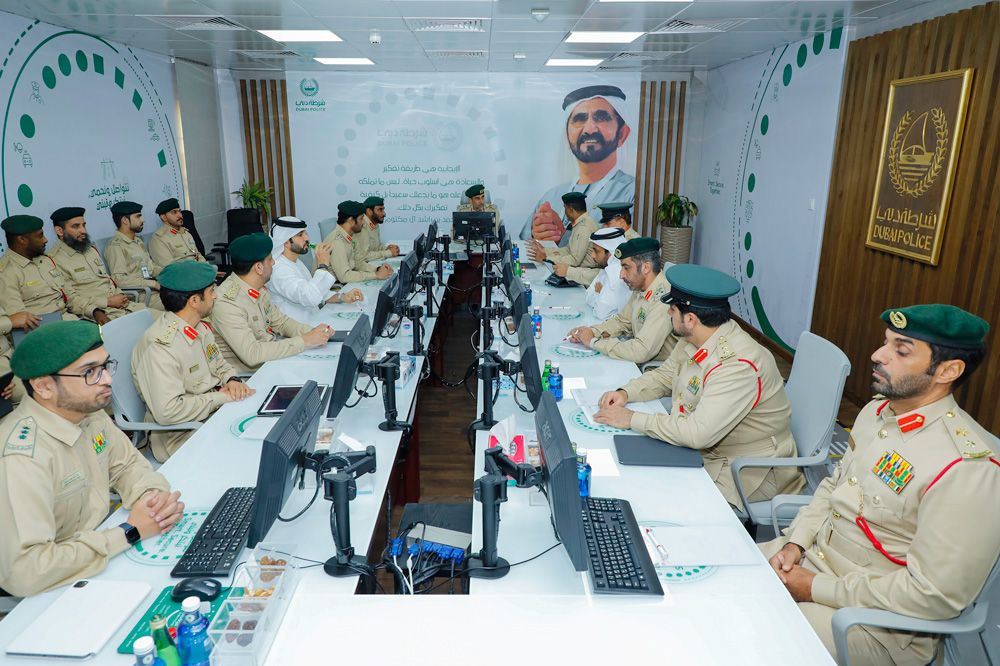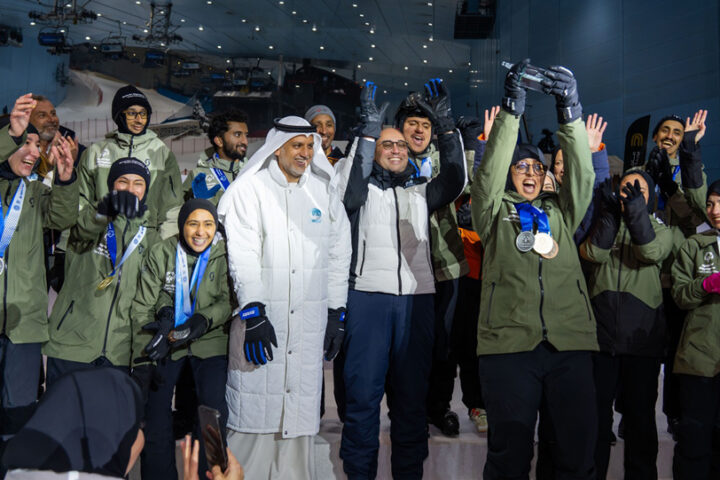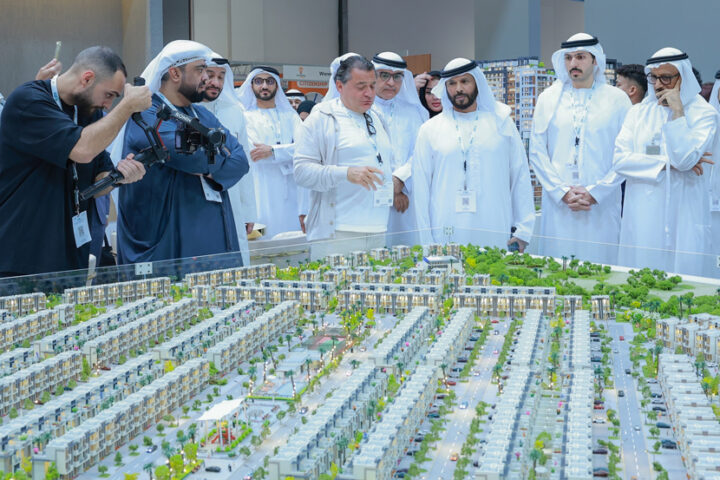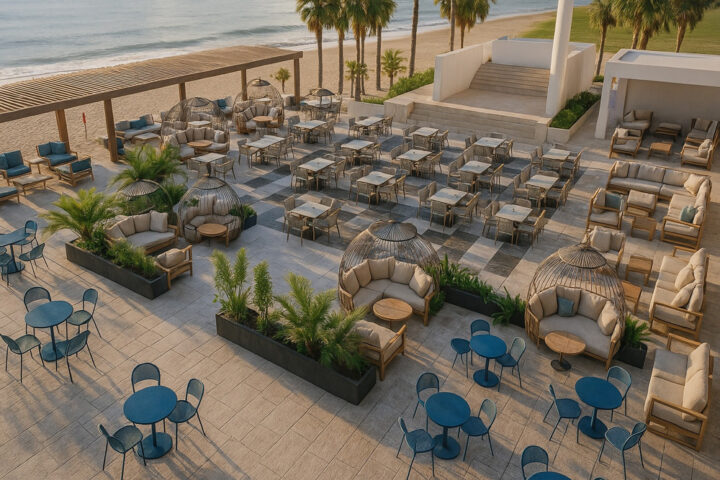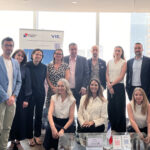Dubai, UAE – The Special Task Force team of South Africa has officially confirmed their participation in the upcoming UAE SWAT Challenge 2024. Emphasizing the significance of the challenge, the team highlighted its crucial role in enhancing combat capabilities for SWAT teams globally and promoting knowledge exchange among law enforcement units.
Preparations for the challenge have been comprehensive, involving physical training, tactical exercises, and situational drills. The focus has been on refining skills such as shooting accuracy, forced entry, and descending techniques. The team aims to showcase expertise in tactical maneuvers, high physical fitness levels, and effective communication during the competition.
Key attributes for a successful SWAT team, as emphasized by the South African team, include robust physical conditioning, strategic expertise, mental resilience, adaptability, teamwork, and skill in strategic decision-making.
Motivated by past experiences in the UAE SWAT Challenge, the team sees this year’s edition as an opportunity to assess their capabilities on a global scale, learn from other elite teams, and enhance operational effectiveness. Newcomers are expected to engage in specialized segments, including the Tower Event, Assault events, and Obstacle Course Racing.
The South African team acknowledged shortcomings in the previous year’s edition and expressed a commitment to improving outcomes. They highlighted the importance of clear communication and developing flexible strategies to overcome unforeseen challenges in this year’s competition.

